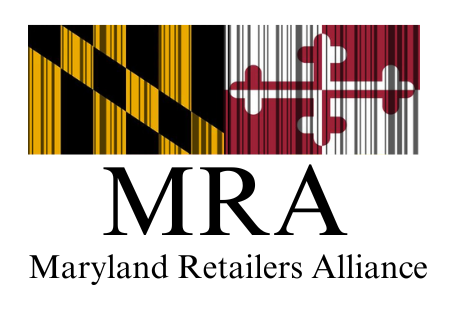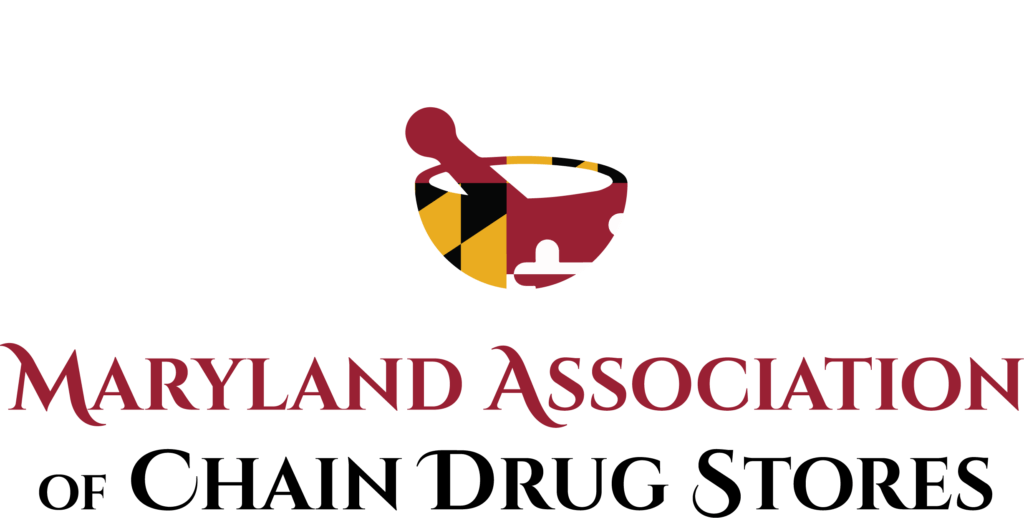MRA In The News

ANNAPOLIS, MD – Maryland’s new organized retail theft law takes effect this week, setting the strictest standards in the region and defining organized retail theft in State statute, authorizing statewide data collection, and expanding the applicability of felony penalties by allowing related thefts to be aggregated across county lines. The bill, championed by the Maryland Retailers Alliance, was introduced in Annapolis for almost a decade before it finally passed earlier this year. The proposal gained traction in recent years as retail theft cases have increased exponentially since the COVID-19 pandemic, destabilizing retail stores in many communities and resulting in closures of stores due to high losses. Maryland’s high felony theft threshold, commercial port in Baltimore, and proximity to multiple interstate highways has historically provided an ideal environment for perpetrators of organized theft. “This law is a game-changer for retailers in Maryland,” said Cailey Locklair, President of the Maryland Retailers Alliance. “It finally gives law enforcement and prosecutors the ability to treat organized retail theft as a serious crime that impacts safety, public health, and access to goods in our communities.” Federal data shows that organized theft is a funding mechanism for other illicit activities including the drug trade, money laundering, and even human trafficking and transnational crime. Organized rings often take advantage of vulnerable individuals to commit retail theft of specific high-value items like laundry detergent, personal care items, baby formula, and copper wire. By allowing charges for related crimes committed across jurisdictions to be joined, the new law puts a stop to criminals’ ability to strategically travel between multiple counties to avoid the state’s $1,500 felony theft threshold and provides the tools needed for law enforcement and prosecutors to target high-level theft rings. “With this new law, Maryland will no longer be ground zero for organized retail crime,” said House sponsor Delegate Karen R. Toles. “So many of my constituents have expressed concerns about this issue, and starting October 1 st , this law will be a tool to hold perpetrators accountable and undoubtedly have a lasting positive impact on businesses and communities across Maryland.” The law, signed as Chapter 192 , takes effect on October 1. ### Media Contact: Cailey Locklair clocklair@mdra.org | 317-397-1918
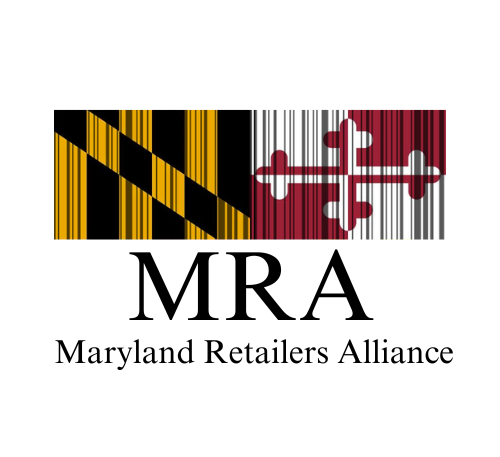
ANNAPOLIS, MD – The Maryland Retailers Alliance (MRA) last week presented its annual awards for legislative advocacy and retail theft prevention. The presentation occurred virtually and was streamed on YouTube. The awards celebrate individuals who exhibit outstanding public leadership, advocate for the success of the retail business community, and support the mission of the MRA. The following awards were presented during the virtual stream: Maryland Retailers Alliance Legislator of the Year: Delegate Karen Toles, District 25 Maryland Association of Chain Drug Stores Advocate of the Year: Delegate Joseline Peña-Melnyk, District 21 Louis L. Goldstein Service Award: Marshall Klein, Klein’s ShopRite Maryland Retailers Alliance Retail Theft Prevention Award: Kyle Graser, Target “Thank you to every single elected official who listened to our concerns, worked with us, sponsored amendments, and supported us on these very important issues,” said Cailey Locklair, MRA President. “Thank you to our members, the retail industry and many businesses that are the backbone of our communities. Lifting your voices up and helping solve problems to ensure your businesses can thrive – it truly is an honor.” The Annual Awards presentation also highlighted MRA’s Legislative All-Star Team, members of the legislature whose actions throughout the legislative session support the success of the organization. About MRA : The Maryland Retailers Alliance is a statewide membership association representing retail businesses of all shapes and sizes throughout Maryland. As the retail community’s major trade association, MRA is a diverse and broad-based organization covering all segments of the retail industry.

As excerpted from The New York Times : Inflation is up and job creation down, but the U.S. economy could still pull through without too much pain. At the moment, the American economy feels a little bit like a hot August afternoon. The air is heavy and still, as lightning flashes on the horizon. The storm could sweep through and leave destruction in its wake. It could set in for a brief drizzle. Or it could pass by in the distance, and take its fury elsewhere. In this very humid metaphor, the electricity in the sky is the steep tariffs that President Trump has now imposed on most goods coming into the United States. It’s also his strict immigration curbs, mass firings of government employees and the pullback in government spending. Economists have been waiting for that multifaceted storm system to start showing up in the economic data. The signs are now unmistakable, but the severity of the impact remains unclear. --- Plenty of indicators suggest inflation and the labor market are headed in the wrong direction. After slowly sinking back to close-to-normal levels, price growth has sped up again, particularly in categories of goods that are heavily imported and now steeply tariffed. A measure of wholesale prices jumped to the highest level since November 2022. Spending has held up, particularly among higher-income consumers, according to credit card data analyzed by Bank of America. But that could be an illusion, as people pay more for the same items, or stock up to get ahead of tariffs kicking in. Cailey Locklair, the president of the Maryland Retailers Alliance, said her members had noticed customers accelerating their purchases to take advantage of discounts and sales tax holidays, knowing that price increases are probably around the corner. “Shoppers are very uncertain about what tariffs could mean,” Ms. Locklair said. “Because of this uncertainty in the market, consumers were spending a lot more in July to start back-to-school early, to mitigate some of this.” Click here to read this article from The New York Times .

As excerpted from The Baltimore Banner : Kids grow fast and that becomes evident during back-to-school shopping season when parents have to replace pants that now land well above the ankle or shoes that are too tight. But this year, parents are being a little more frugal as they replace too-small clothes along with pencils, crayons and folders crushed at the bottom of book bags decorated with cartoon characters that kids may or may not even like anymore. “Those concerns surrounding inflation and the impact of tariffs are causing consumers to be a little bit more budget conscious,” said Cailey Locklair, president of the Maryland Retailers Alliance. “That’s really what’s impacting some of this spending.” Maryland Comptroller Brooke Lierman said President Donald Trump’s steep tariffs , which she characterized as effectively being additional sales taxes for consumers, were particularly ill-timed for families and back-to-school shopping. She said she’s spoken to several retailers who are raising their prices now because they can’t continue to eat costs. And many school supplies cost at least 20% more today than they did pre-pandemic. Advertise with us “It’s not just that parents and families feel like prices are higher now,” Lierman said. “They actually are higher now.” This year, parents and others who care for children are more likely to shop around for the best deals and break brand loyalty — bye, Crayola crayons; hello, Cra-Z-Art. And they’ll be digging for cheaper items at both big box retailers and secondhand stores. They’re also increasingly keeping just the basics in their carts, which they started filling earlier in the summer to take advantage of deals and spread out spending. They can expect to say these things a lot more: “No,” “Put that back,” and “I don’t care if your friend got it, we’re sticking to the list.” Maryland merchants aren’t bracing for any major spending declines, said Locklair, who represents big and small retailers across the state. Still, stores are offering deals or matching prices of competitors to reach parents who are getting pickier with their dollars. Click here to read the full article from The Baltimore Banner .
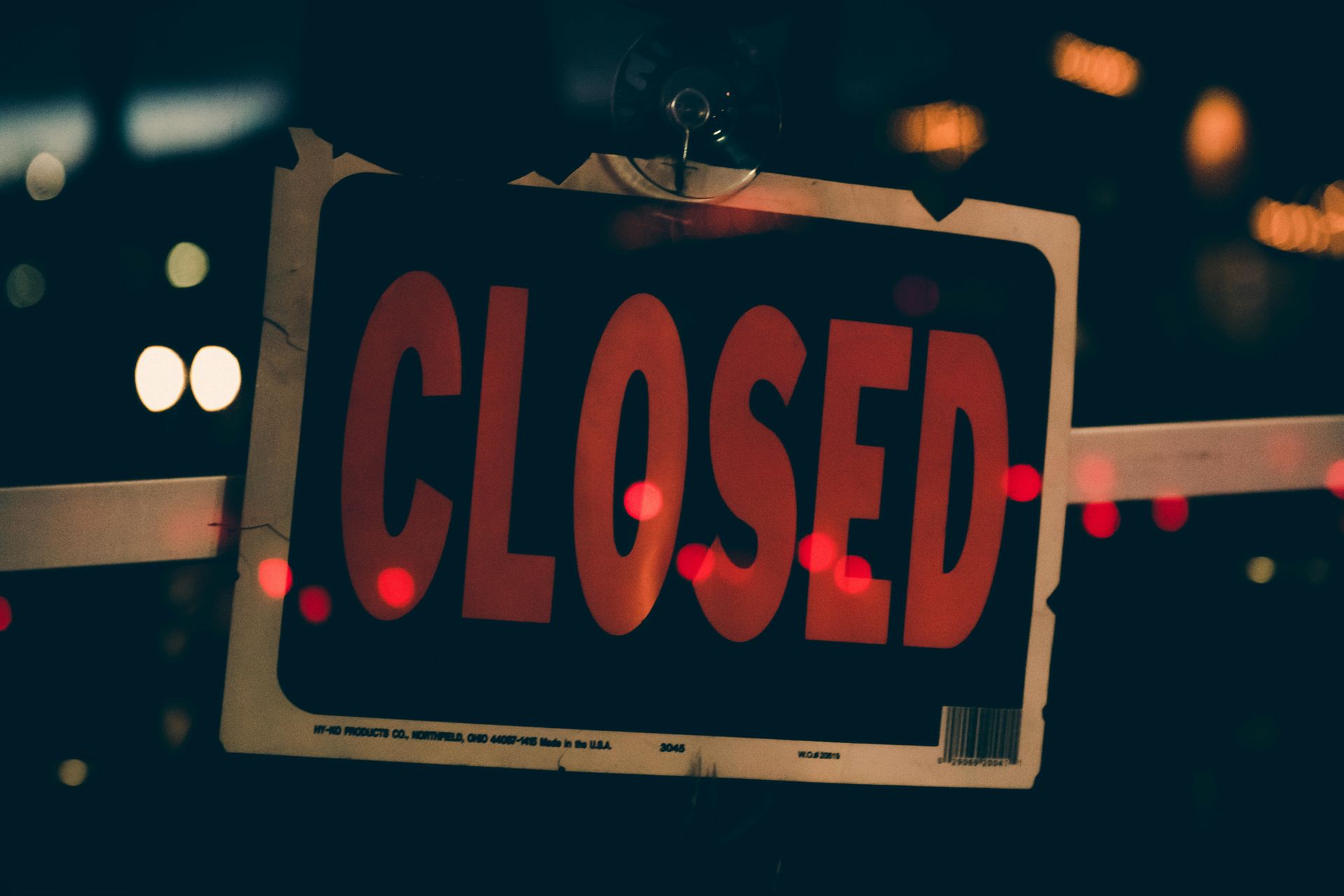
As excerpted from The Baltimore Sun : Grocers and food policy researchers are sounding alarms that looming federal food stamp cuts could gut store revenues, trigger layoffs and shutter local independent stores. The changes to the federal food stamp program — officially called the Supplemental Nutrition Assistance Program or SNAP — could potentially cause about 3,800 SNAP state retailers to experience a downturn in the next few years and affect hundreds of thousands of Marylanders’ ability to afford groceries. The program cuts passed in the “One Big Beautiful Bill,” grocers say, could cause their customers to lose their eligibility, limit their spending power and harm vulnerable communities. Supporters, however, said the law promotes work and program integrity. In fiscal year 2025, Baltimore City had, on average, about 147,300 participants in SNAP, according to June 2025 Maryland Department of Human Services (DHS) . About 693,5000 Marylanders, or 11% of the population on average , receive SNAP monthly. In fiscal year 2027, Maryland’s share of administrative costs for SNAP will increase from 50% to 75%. In fiscal year 2028, the state will pay for SNAP benefits depending on its “error rate,” or how much it over- or underpaid on benefits in past years. Pedro Silva is one of those grocers whose business could struggle when the new law starts being implemented. He opened Tex-Mex Corner Deli & Grocery three years ago in the Highlandtown neighborhood in Baltimore, where SNAP recipients can purchase food with their EBT card. Now, he worries that the incoming cuts will slash his profits because he estimates 30% of his sales are from SNAP. --- Maryland’s “brick and mortar shops,” like Silva’s store, would feel the greatest impact of the changes, said Cailey Locklair, president of the Maryland Retailers Alliance and Maryland Food Industry Council. Local grocers already work with a low profit margin of 1% to 3%, Locklair said. If they see fewer consumers and money coming in, it would drastically affect their bottom line and their ability to stay open. “It’s very, very alarming and very concerning for many retailers,” Locklair said. Click here to read the full article from The Baltimore Sun .
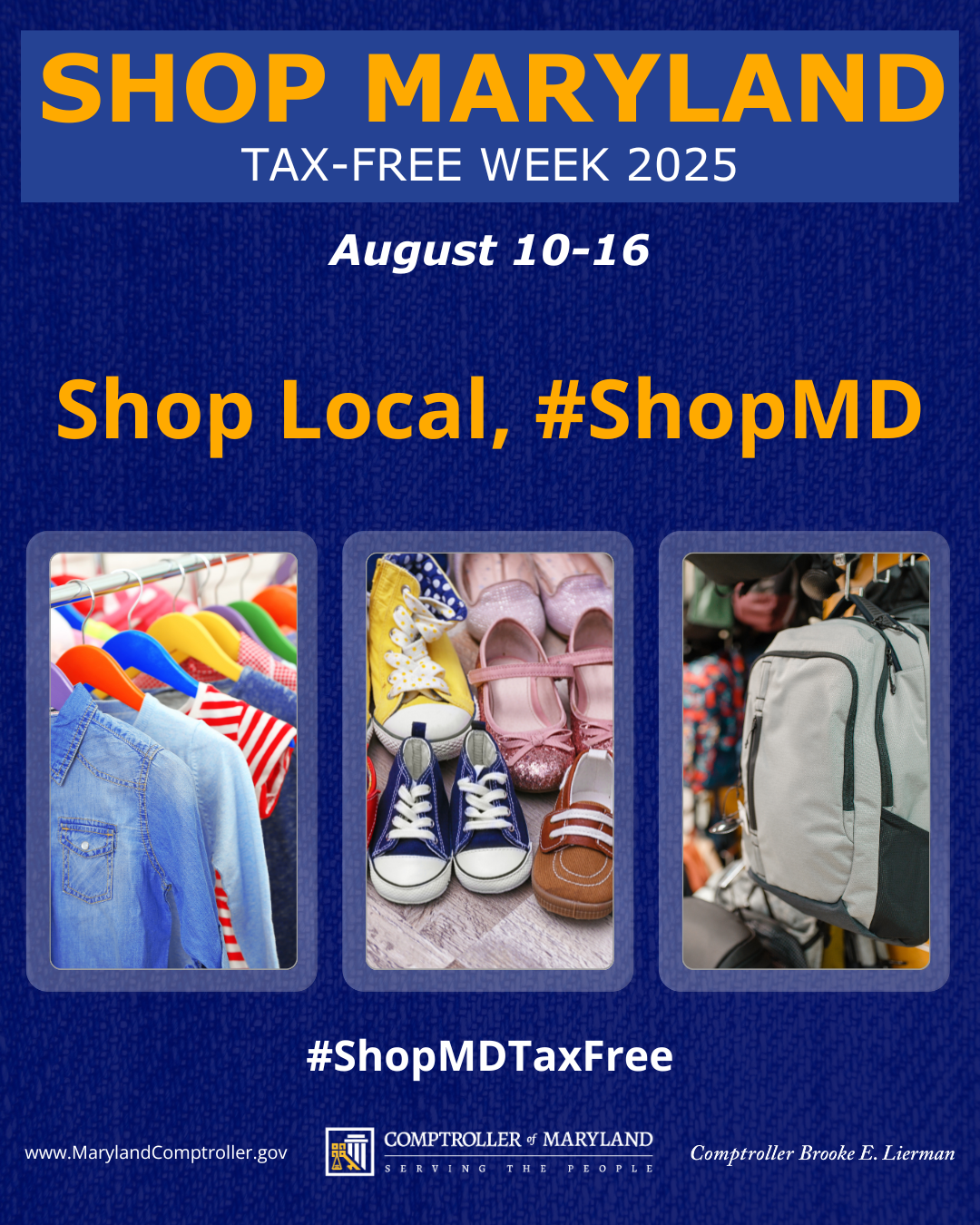
As posted by NottinghamMD.com : ANNAPOLIS, MD—Maryland shoppers will get a break on the state’s 6% sales tax for one week this month on certain clothing and school-related items, Comptroller Brooke E. Lierman announced Tuesday. The annual sales tax holiday, known as Shop Maryland Tax-Free Week , will run from Sunday, August 10, through Saturday, August 16. During this period, consumers can purchase clothing and footwear priced under $100 without paying the sales tax. The first $40 of the purchase price for backpacks will also be exempt from the tax. “As costs continue to go up, shopping during the sales tax holiday is a great way to keep money in the pockets of hardworking Marylanders and help their budgets go further,” Lierman said in a statement. She encouraged residents to shop within the state to support local businesses. The sales tax holiday, established by state law in 2007, is timed to help families with back-to-school shopping. Cailey Locklair, president of the Maryland Retailers Alliance, highlighted the economic benefits of the event. “By shopping local and tax-free, we invest in our neighborhoods, strengthen our economy, and ensure a bright and affordable future for everyone,” Locklair said. Additional information can be found on the Shop Maryland Tax Free webpage here and an FAQ is available here (PDF) .

As excerpted from Grocery Dive : Grocers are facing a bevy of incoming SNAP changes from the spending and tax bill President Donald Trump signed into law earlier this month and from a handful of states that recently received permission to make select items like candy and soda ineligible for SNAP spending. The One Big Beautiful Bill Act that Trump signed includes $186 billion in SNAP cuts over 10 years, said Stephanie Johnson, group vice president of government relations and political affairs at the National Grocers Association. That cut is mainly tied to altered eligibility requirements that are projected to reduce the number of consumers who can use the food assistance program, Johnson said. Some of the major changes to SNAP in the tax bill include: Expanding SNAP eligibility work requirements to include parents with children ages 14 and older and people under age 65 (up from 55). Limiting SNAP eligibility to U.S. citizens and lawful permanent residents and excluding certain immigrant groups like refugees and people seeking asylum. Eliminating the National Education and Obesity Prevention Grant program, known as SNAP-Ed. Requiring cost neutrality for the Thrifty Food Plan, which the USDA uses to determine SNAP benefit amounts. Requiring states starting in fiscal year 2027 to pay 75% of SNAP administration costs instead of splitting with the federal government. Requiring states starting in fiscal 2028 to pay for SNAP benefits depending on their “error rate.” --- The “wild card” facing grocers is how states’ error rates and the shifting costs of SNAP funding may affect grocers, Johnson said. States with error rates at or above 6% will be required to pay a portion of the benefit costs, ranging from 5% to 15%, depending on the error rate. Over the last 20 years, every state except South Dakota has had an error rate above 6% for at least one year, according to the Center on Budget and Policy Priorities . “This is going to be hard to tell what the impact will be there,” Johnson said. “It will be dependent on the state’s error rates, their budget and other variables.” While states don’t have the authority to reduce the benefit amount that participants receive each month, they do have the flexibility to remove participants through policy changes, Johnson said. That is more likely to happen in states with higher error rates that have trouble squaring the costs of the SNAP program within their state budgets. Maryland is a state with an error rate “that is on the higher side,” said Cailey Locklair, president of the Maryland Retailers Alliance. Click here to read the full article from Grocery Dive .

As excerpted from The Baltimore Sun : George Zahradka, a third-generation farm owner in Essex, mostly sells directly from his farm stand or to nearby restaurants. With new tariffs on tomatoes from Mexico falling during Maryland’s tomato season, he’s hopeful that more people will make the switch to local produce. “If you can grab a really good tomato or a very bland tomato for the same price, which one would you take?” Zahradka said. Nationwide, tomato prices are expected to rise this week as the United States imposes a 17.09% import tax on tomatoes from Mexico, which Maryland farmers expect will bring some demand for locally-grown tomatoes. The anti-dumping duty was announced on Monday, as the U.S. Department of Commerce said the country withdrew from a 2019 agreement with Mexico regarding fresh tomato sales. The Tomato Suspension Agreement, originally signed in 1996, provided some stability to the tomato market. A version of this decades-long agreement expired during President Donald Trump’s first term and was renewed in 2019, requiring tomatoes from Mexico to go under U.S. inspection and adhere to minimum prices for tomatoes. However, the Trump administration now says that importers in Mexico are selling tomatoes at an unfair rate, also known as dumping, leading to the administration’s withdrawal. The Trump administration is also threatening 30% tariffs on all goods from Mexico and other countries, which could start in August. Even as farmers hope for more local purchases, food industry groups told The Baltimore Sun that the tariffs will be most felt by grocery store shoppers and restaurants, as many won’t be able to easily switch from their typical suppliers. ... In a statement, the National Restaurant Association told The Sun that American restaurants rely on a steady flow of imported produce, including tomatoes, that cannot be grown at the same level in the United States. The statement added that the association is pushing the Trump administration to “pursue policies that will secure fair trade agreements while ensuring the supply chain.” The longstanding agreements on tomato imports have provided stability for growers and consumers, said Cailey Locklair, president of the Maryland Retailers Association, which represents the Maryland Food Industry Council. The duty may also impact American jobs transporting tomatoes, she said. “Cost increases will occur. Businesses, consumers are concerned,” Locklair said. “In grocery, a lot of pricing is out of our control, but this will impact that for consumers.” Click here to read the full article from The Baltimore Sun .

A s excerpted from Maryland Matters : It won’t happen immediately, but advocates and state officials are predicting that changes to the Supplemental Nutrition Assistance Program in the budget reconciliation bill signed last week will deliver “a devastating blow” to many of the 680,000 Marylanders who get SNAP benefits. The biggest change that recipients will see are new work requirements for some able-bodied recipients that analysts say many Marylanders simply will not be able to meet, for a number of reasons. The bill also includes a massive shift in costs from the federal to the state governments. Currently, the split administrative costs for the program 50/50 and the federal government pays for all the costs of the actual benefit. Beginning next year, states will pay 75% of administration, at a cost of $172.5 million, according to estimates from the Maryland Department of Human Services. A year later, they will pay for up to 15% of the actual benefits, according to a formula based on current performance. Maryland will pay the most, 15%, at a cost in current dollars of $240 million. The bill also caps future benefit increases at the rate of inflation and limits eligibility to citizens and lawful permanent residents; refugees and asylum-seekers would be kicked off the program. The Urban Institute estimated this month that about 369,000 Maryland families would lose some or all SNAP benefits. Of those, 81,000 would lose an average of $150 a month — the current average monthly benefit in Maryland is $180 — and 51,000 families with children would lose and average of $81 a month. ... SNAP cuts could also affect some businesses in the state: For groceries that get a significant amount of their business from SNAP recipients, the reductions could pose a threat. Maryland Retailers Alliance President Cailey Locklair said there’s no indication yet whether that will happen. But any reduction in consumer spending could have a serious impact on grocers, she said, given the industry’s low average profit margins of 3% or less. “I have some retailers where the majority of the revenue that’s coming in is from individuals who are receiving benefits,” Locklair said. “So the sheer viability of some of those brick-and-mortar retailers in communities that are underserved is going to be contingent on the same level of spending going on.” Click here to read the full article from Maryland Matters .

